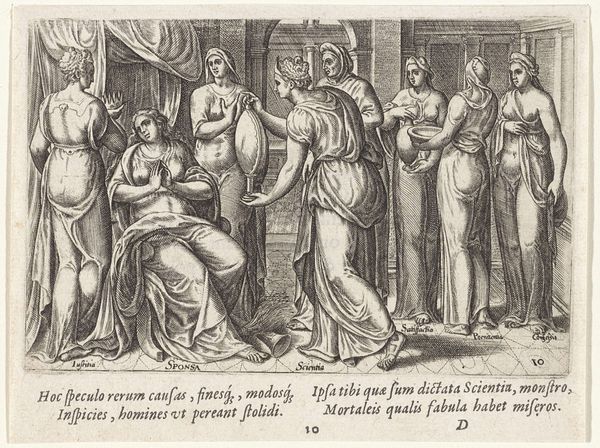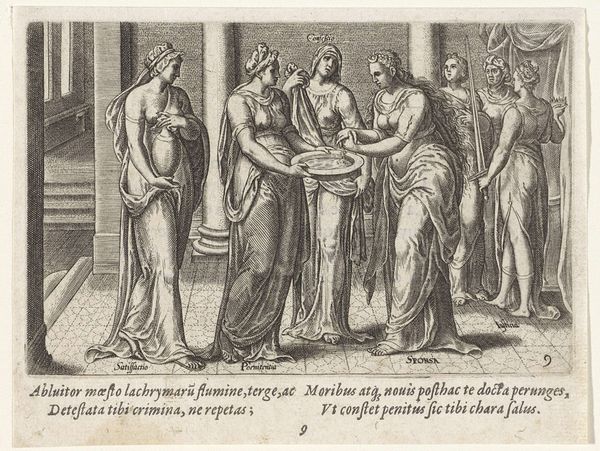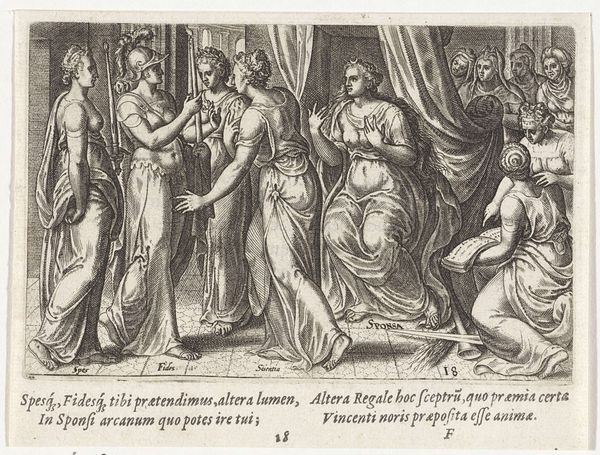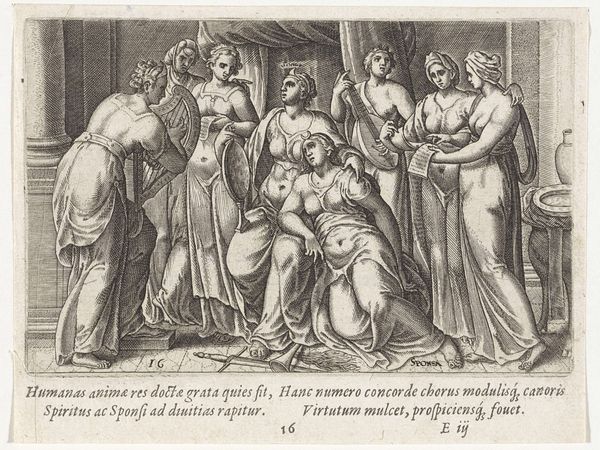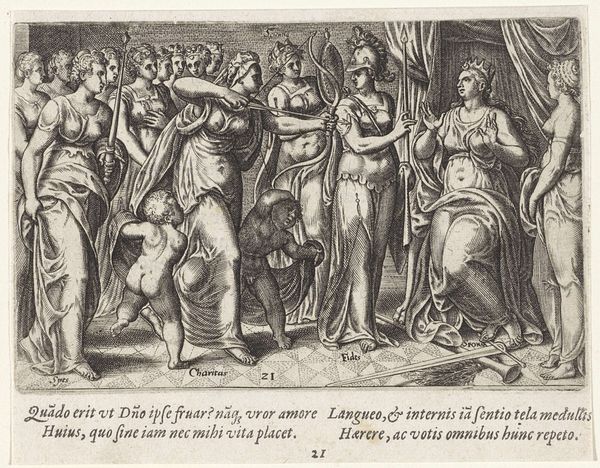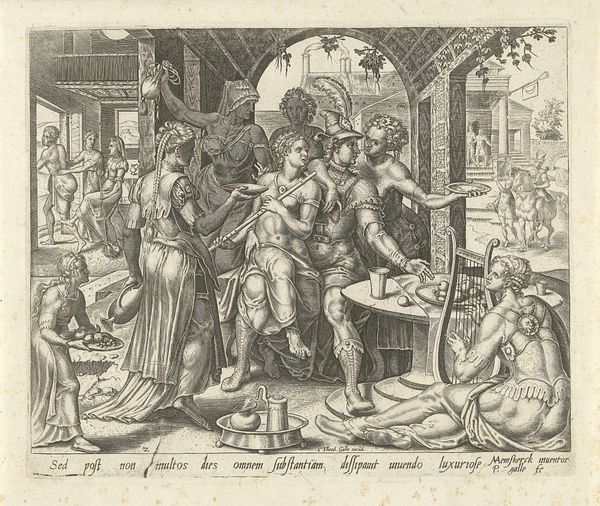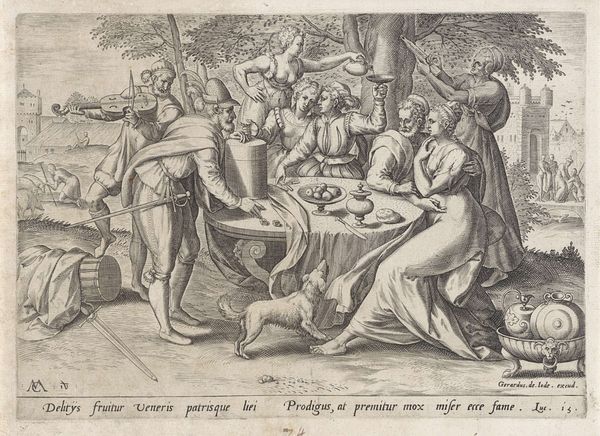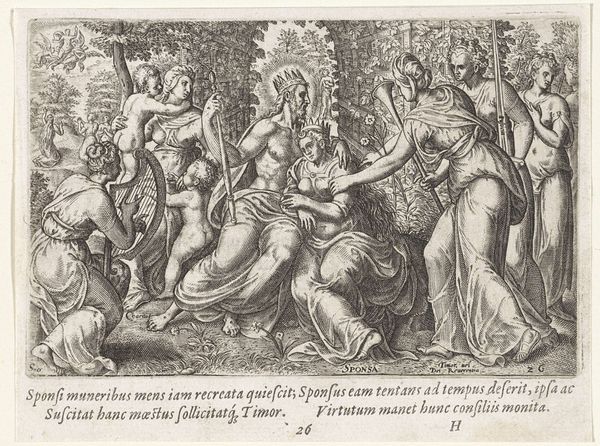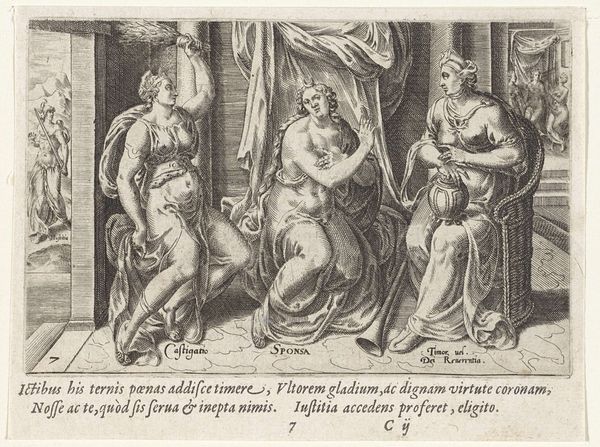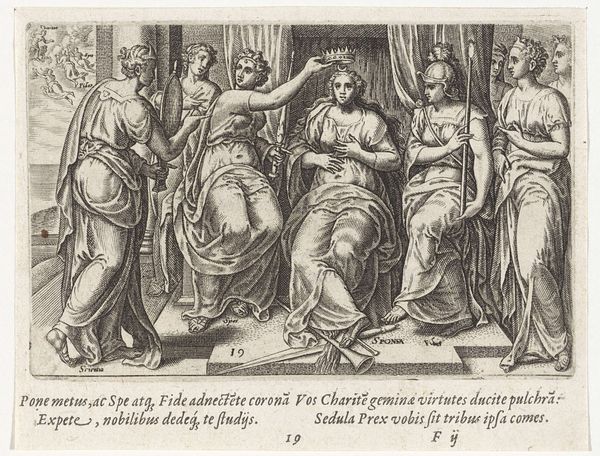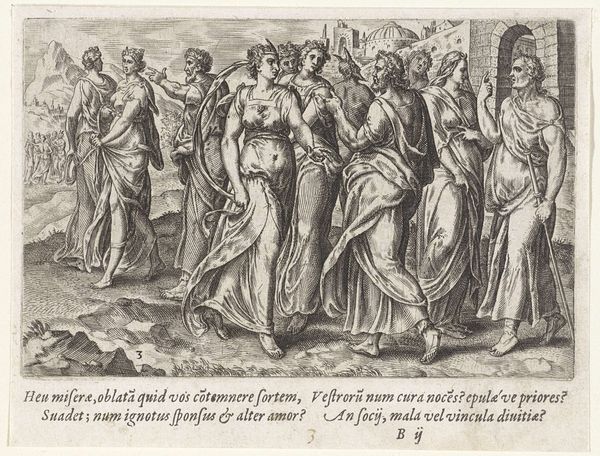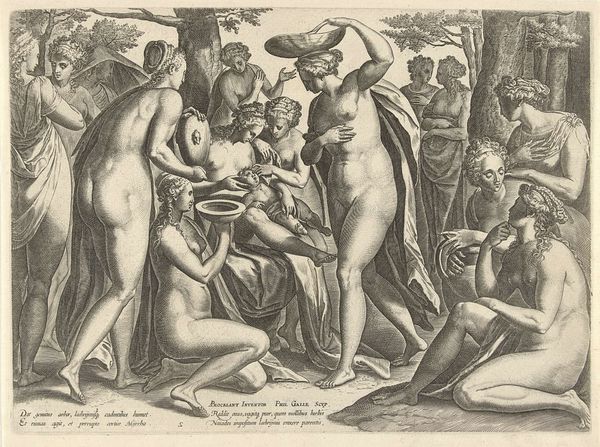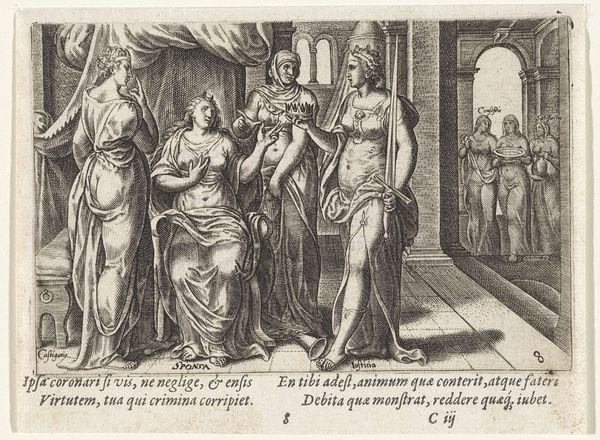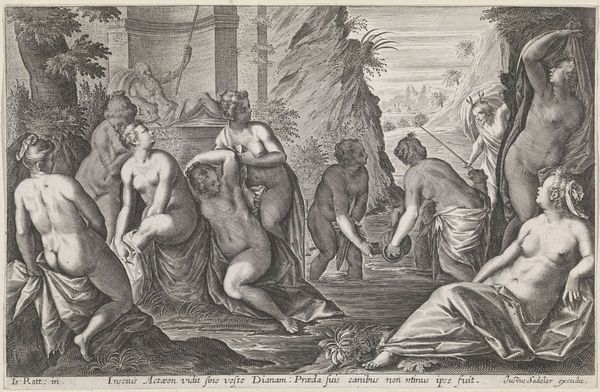
print, engraving
#
allegory
# print
#
mannerism
#
figuration
#
history-painting
#
northern-renaissance
#
engraving
Dimensions: height 90 mm, width 140 mm
Copyright: Rijks Museum: Open Domain
This print by Wierix, made around the late 16th to early 17th century, uses fine lines and careful shading to create a rich scene filled with figures and symbolic objects. The composition centres on a bride being shown her reflection by Science, who is holding a mirror. This isn't merely a moment of vanity. It is a deeply moral lesson. The mirror reflects not beauty, but truth. Other figures attend to the bride. Each with their own attributes, they signify various aspects of the bride's responsibilities and the transient nature of earthly pleasures. Notice how Wierix structures the scene. The careful arrangement of bodies and objects creates a visual argument about virtue, knowledge and duty. The print thus functions as a semiotic field, where objects like the ewer labeled 'Sanctitas' or the discarded trumpet and broom on the floor speak to the complexities of marriage and the pursuit of higher values. It questions the value placed on outward appearance against the more durable merits of virtue and knowledge.
Comments
No comments
Be the first to comment and join the conversation on the ultimate creative platform.
